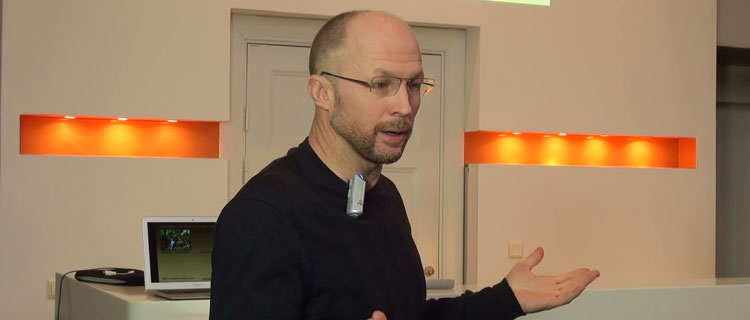Time:
00:27:20

Deforestation
Borneo's last stand
Brent Loken on possible solutions for protecting Borneo's forests
The biologically and culturally rich island of Borneo has faced unprecedented deforestation and habitat conversion. Since 1965, approximately 60% of Borneo's forests have been lost. Although the rate of deforestation has slowed, it still remains one of the highest in the world.
In this lunch seminar, Brent Loken, Executive Director and co-founder of Integrated Conservation, explored some of the underlying reasons for this deforestation. Using Common Pool Resource (CPR) theory, he identified variables which have influenced deforestation rates, some of which have been described in CPR theory and others which have not.
Loken also presented Integrated Conservation's work with the Wehea Dayak to protect one of the most important forest areas in East Kalimantan and the efforts to integrate CPR theory into conservation planning and policy.
About Brent Loken
Brent Loken is Executive Director and co-founder of Integrated Conservation. He has lived and worked in Borneo with the Wehea Dayak since 2009 to examine a variety of ecological, social, and economic issues pertaining to forest conservation, conservation-based livelihoods, and local governance.
Brent Loken is also involved with Resilience Alliance Young Scholars (RAYS) and the Pierre Elliot Trudeau Foundation. His current research focuses on applying Common Pool Resource Theory (CPR) to understand forest governance in Indonesia. In addition, Brent is investigating the ecological requirements of various species including the clouded leopard and orangutan and how to meaningfully integrate research into conservation planning and policy.






